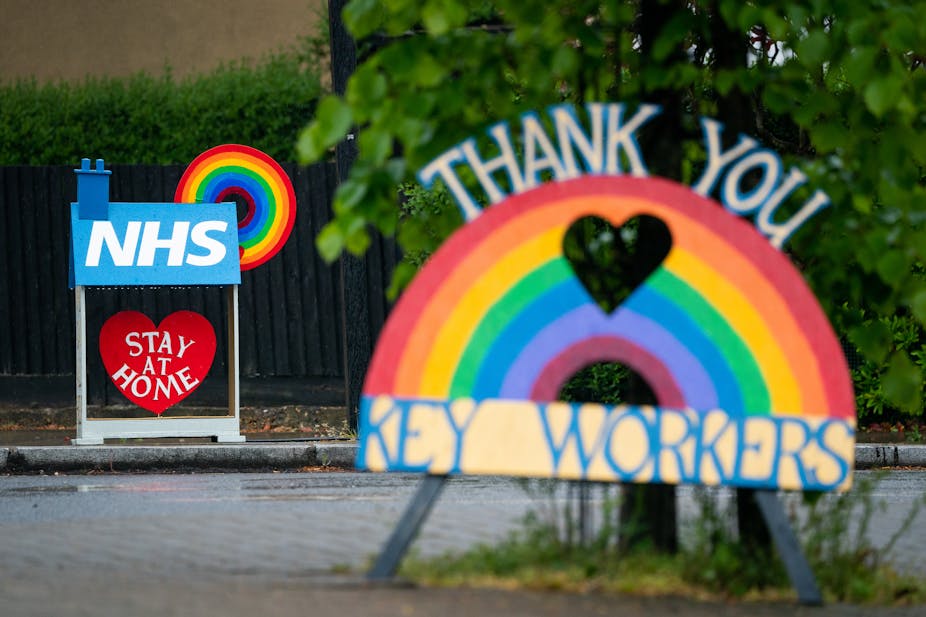The UK government message is clear: we are all in this pandemic together. Everyone is urged to stay at home and the businesses that are losing out from lockdown have been offered significant financial assistance.
But the reality is that, depending on the type of job you have and the industry you work in, you will be affected very differently by the coronavirus pandemic. Meanwhile, the crisis highlights how many of society’s key workers – from carers to supermarket employees and delivery drivers – are in extremely precarious situations. Many are on zero hours contracts and struggle to make ends meet. To paraphrase George Orwell, we’re all equal but some are more equal than others.
In many ways, the coronavirus crisis is a magnifying glass showing the depth of inequity that characterises British society. Inequality in the labour market is, in large part, due to cost cutting by businesses and deregulation of how they operate. Might now be an opportunity for the UK labour market to reform? We call for three fundamental changes to enable this.
1. More core and less periphery workers
The UK labour market has largely adopted the flexibility model of core and peripheral workers. Broadly speaking, core workers are deemed essential to an organisation and tend to be on permanent contracts. Peripheral workers, deemed less essential, are more likely to be on temporary contracts and brought in when needed. They are less likely to receive training and development opportunities and are more likely to have their wages cut or not have their contracts renewed.
This flexible model can help organisations respond to changing environments, although it tends to benefit shareholders and higher skilled temporary workers. But for each well-paid contractor who advises industry, many more lower-paid gig workers face perilous precarity and, with the onset of COVID-19, life-threatening jobs.
Our recommendation is to convert more workers from the periphery to the core. This will demonstrate commitment to all employees, something that has been in decline over the last few decades in the drive to get more for less through precarious insecure work.
2. Higher pay and protection
Many gig workers are not eligible for employment protection and do not receive paid holiday and significant numbers do not even make the minimum wage. We are currently running a survey of key workers that has so far found 28% are being paid below the living wage (the amount needed to pay for basic needs). This exacerbates their vulnerability and encourages them to work when ill, in order to earn vital income – putting themselves and others at risk.
Many of these are on the front line – care workers, food producers and deliverers – risking their own health for the benefit of those who have assurances of state furlough money. These key workers need the same level of security as employees. A universal basic income would provide all citizens with a sum of money, regardless of income, and would ensure protection for everyone in society.

3. Elevating the status of key workers
If every cloud has a silver lining, then a legacy of coronavirus might well be that key workers are accorded the value they deserve. This includes the essential role played by carers, supermarket shelf stackers, bin men and delivery drivers.
This higher status should manifest itself through recognising, paying and protecting these workers through this crisis. That means giving them the same benefits as employees, ensuring crucially that no one is left to fall through the net. A badge, as suggested by the government, is not enough.
The two nurses that Prime Minister Boris Johnson recently thanked for caring for him in intensive care were both immigrants. One is from New Zealand and the other from Portugal. This reflects the high level of diversity among key workers. A total of 23% of hospital staff, 20% of agricultural workers and 40% of food production workers are migrants.
Yet migrant workers – despite often fulfilling key worker roles – face multiple disadvantages. This is something we have witnessed through our research with Roma people, who experience the lowest outcomes on all measures.
What’s more, the UK government’s latest policy toward immigration is to introduce a points-based system, which would disqualify many key workers entry to the UK. Many care workers and drivers would not meet the minimum salary requirements, and food production workers would not meet the skills requirements. The fact that the UK has had to fly over fruit pickers from countries in lockdown shows how dependent the country is on these essential workers.
When we consider the gargantuan effort to deal with the coronavirus pandemic – from new hospitals to a huge economic guarantees from the government – it shows that big changes are possible when there’s the political will to act. Plus, appreciation for the real key workers in society has never been higher, as evidenced by the regular clapping turnouts each week.
But the pandemic presents us with a paradox: the status and risk involved with being a key worker has been elevated, but nothing has been done to improve their pay or conditions of employment. We argue that a more equal and fair society is possible. One where the key workers that make our lives easier, safer and more manageable are treated appropriately.

